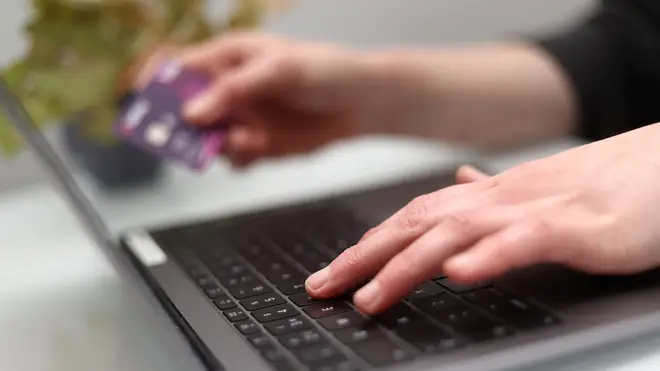
Ian Payne 4am - 7am
20 November 2020, 00:04

Men are more likely to have been scammed than women during the coronavirus crisis, Lloyds Bank’s research suggests.
More than three million people have been scammed in some way since the coronavirus pandemic started, a bank estimates.
Lloyds Bank calculated that around 3.6 million adults across the UK had been ripped off, based on findings from a survey of more than 2,000 people.
One in 14 (7%) people surveyed had been scammed during the pandemic, with men (9%) more likely to say they had been conned than women (6%), Lloyds found.
Criminals have seized upon the crisis as a new opportunity – conning people by going door-to-door, sending out bogus texts related to coronavirus and cold calling people while they work from home. There have also been concerns about online cons such as romance scams.
Feelings of loneliness and isolation may play a part in Covid-19 cons being successful.
Some people said a lack of contact with others had led to them letting down their guard – with 18 to 24-year-olds being the most likely to talk to strangers as a result of limited contact.
They were also the age group most likely to say they had been scammed during the pandemic, with one in six (15%) saying they had been victims of fraud.
Worryingly, nearly one in 10 (8%) people across the survey also said they would give someone their personal details if they sounded trustworthy.
Paul Davis, retail fraud director, Lloyds Bank, said: “Fraudsters are always inventing convincing stories and can easily pretend to be someone else and even make their number look like they are calling from your bank or another company. If you’re unsure, always hang up.”
Meanwhile, a separate survey from Which? found that nearly one in 10 (9%) people have fallen victim to online scam adverts via social media.
The consumer group said tech giants should have greater legal responsibility for preventing scam content from appearing on their websites.
People may pay in advance for goods online which never turn up, or are bogus. Scammers may falsely claim goods are endorsed by celebrities.
Adam French, consumer rights expert at Which?, said: “Our research suggests that online purchase scams are taking place on an industrial scale.”
A Facebook statement said: “There’s no place for fraudulent or inauthentic behaviour on Facebook and we have removed the pages reported to us by Which?
“We invest in people and technology to remove fraud from our platforms, and we urge people to report any suspicious posts to us.”
Google said: “Our priority is showing useful and relevant ads to people when they’re searching for a product or service, while protecting them from non-existent or misleading offers. We take this responsibility seriously and immediately remove ads that violate our policies.”
Twitter said: “It is against our rules to use scam tactics on Twitter to obtain money or private financial information. Where we identify violations of our rules, we take robust enforcement action.”
Here are tips from Which? if you have been scammed by an online advert:
– It is possible to get your money back in many cases, but it may take time.
If you paid using a bank transfer, contact your bank immediately.
If you paid by credit or debit card there are card protections. Ask your bank if you are eligible to claim using chargeback or Section 75 of the Consumer Credit Act.
When using PayPal, your money should be protected by its buyer protection policy.
– Report the advert to the platform you saw it on. Major social media platforms and search engines allow you to flag scam adverts using a “report” button or form.
– If you have lost money or personal details to a scam, report it to Action Fraud.
– You can also report fake or misleading adverts to the Advertising Standards Authority (ASA).
And here are some general scam avoidance tips from Lloyds Bank:
– Always keep your banking password and Pin private.
– Use an anti-virus to protect your devices.
– Be careful with unexpected emails, even if you think you know the sender. Do not click on any links or attachments unless you are sure they are safe.
– Do not assume an unexpected call is genuine, even if the number appears real. Call back on a trusted number – not the one the caller gives you.
– Never move your money to a “safe” account. Your bank will never ask you to do this and neither would the police.
– Do not allow anyone to remotely access devices such as laptops unless you contacted them for help and you are sure they are genuine.